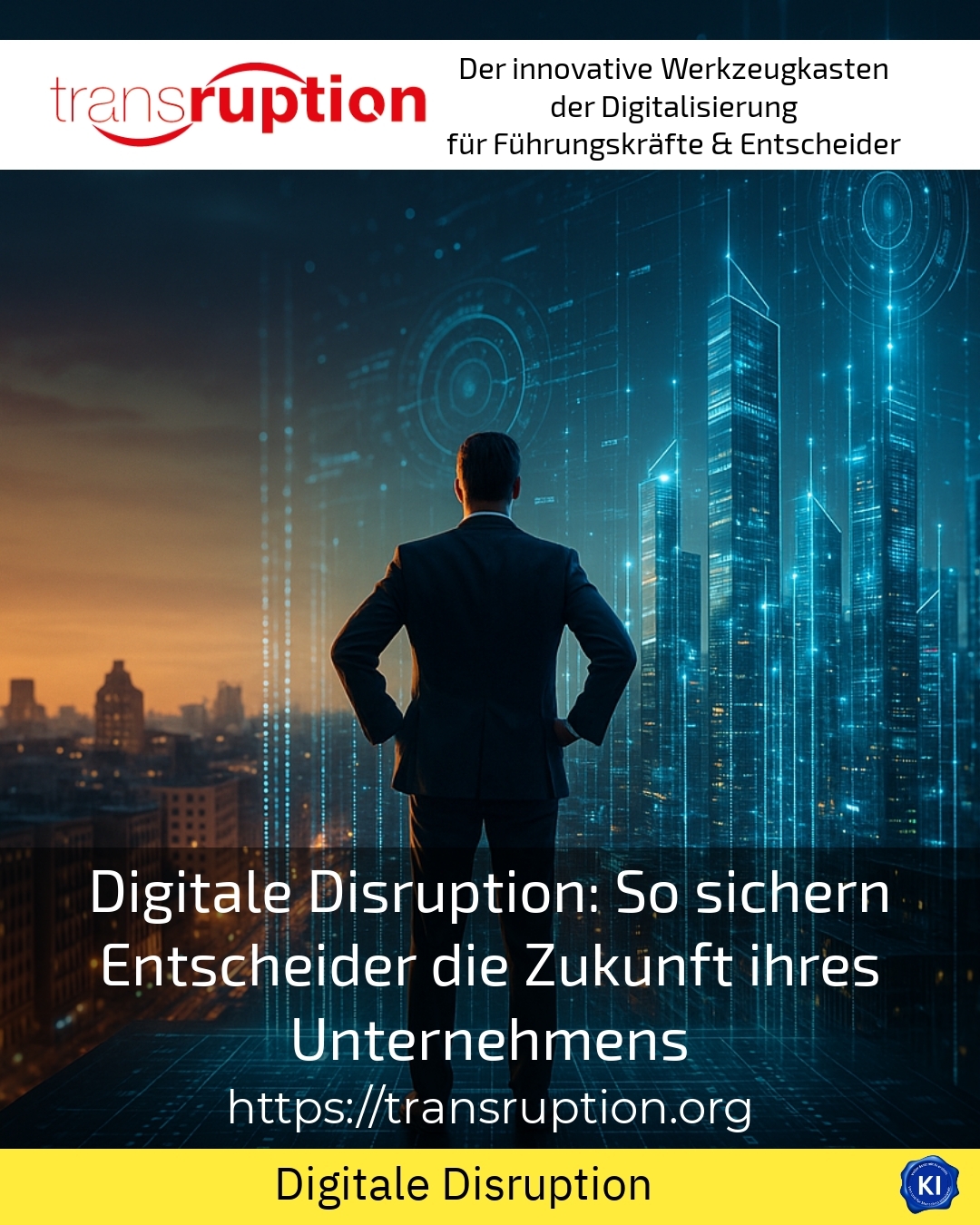Digital disruption is fundamentally changing markets and business models. It is closely related to disruptive innovations that question existing structures and open up new ways of creating value. Companies are faced with the challenge of adapting to these changes in order to remain competitive. Digital disruption goes beyond simple digital transformation and requires companies to adapt flexibly and utilise new technologies in order to be successful[1][2][3].
What is digital disruption?
Digital disruption describes the profound change in markets or business models that is triggered by digital technologies. This change can displace existing products, services or processes and leads to the emergence of new digital business models. One example of this is Airbnb, which has revolutionised the traditional accommodation industry by providing a platform for private accommodation[2][3].
Examples of digital disruption
Another example is Netflix, which has marginalised traditional TV providers and video stores through its streaming services. These disruptive innovations offer customers a greater advantage than traditional products and services, leading to rapid adoption[3][4].
Another example is the music industry, which has been fundamentally changed by the transition from CDs to streaming services. Platforms such as Spotify have made it possible to access music easily and cheaply, which has greatly reduced the demand for physical sound carriers[6].
Digital disruption in practice
In order to successfully face digital disruption, companies should actively respond to digital innovations. This can be done by introducing new technologies such as big data and machine learning. These technologies enable companies to optimise their processes and develop new business models that are better tailored to changing customer needs[3][4].
BEST PRACTICE at the customer (name hidden due to NDA contract)A company in the logistics sector has made its supply chains more efficient by implementing IoT technologies. This has enabled it to reduce delivery times and increase customer satisfaction. These measures have enabled the company to hold its own in an increasingly digitalised market.
Adaptation to changes
Companies must be prepared to rethink their business models and adapt to changing market conditions. This may mean questioning their own processes and being prepared to „cannibalise“ themselves in order to be successful in the new digital landscape[5].
Digital disruption as an opportunity
Digital disruption offers companies the opportunity to reinvent themselves and develop innovative solutions. By utilising new technologies, they can strengthen their competitiveness and tap into new markets. Companies that adapt to these changes at an early stage can consolidate their position in the market and make it future-proof[6][7].
My analysis
Overall, digital disruption is a decisive factor for the success of companies in a constantly changing world. By adapting to digital innovations and being prepared to question traditional business models, companies can secure their future and capitalise on new opportunities.
Further links from the text above:
- Innolytics Digital Disruption
- Digital disruption in marketing, sales and customer service
- Digital disruption: definition and examples
- Digital disruption
- Digital disruption and megatrends
- Digital disruption
For more information and if you have any questions, please contact Contact us or read more blog posts on the topic TRANSRUPTION here.















